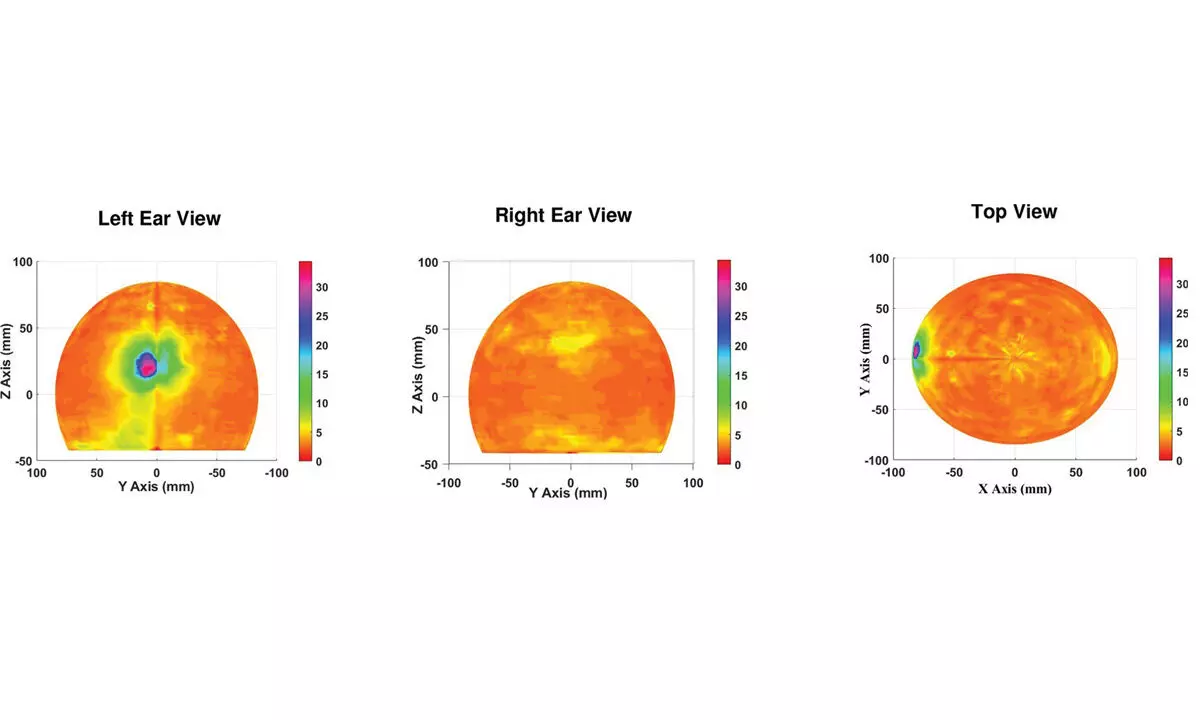Researchers propose non-invasive diagnostic tool for Epileptogenic Zone Detection

Researchers propose non-invasive diagnostic tool for Epileptogenic Zone Detection
Shedding more light on the cause and pivotal point on certain neurological disorder, a team of researchers from the Indian Institute of Technology, Delhi, have come up with a non-invasive EEG based Brain Source Localisation (BSL) framework for epilepsy focal detection that is time efficient and patient friendly.
Shedding more light on the cause and pivotal point on certain neurological disorder, a team of researchers from the Indian Institute of Technology, Delhi, have come up with a non-invasive EEG based Brain Source Localisation (BSL) framework for epilepsy focal detection that is time efficient and patient friendly.
Epilepsy is the fourth most common neurological disorder in the world and affects millions worldwide. It involves brief episodes of involuntary body (partial/entire) movement called seizures and may be accompanied by loss of consciousness and control of bowel or bladder function, primarily due to erroneous excessive electrical discharges. The team of researchers led by Professor Lalan Kumar, Department of Electrical Engineering, at the premier institute, have proposed novel head harmonics-based algorithms for seizure localization.
Dr Amita Giri, a Prime Minister's Research Fellows (PMRF) in the Department of Electrical Engineering at IIT Delhi, has developed the novel epileptic region detection method as a major part of her Ph.D. work. The other members of the research team include Professor Tapan K. Gandhi, Electrical Engineering Dept., IIT Delhi and Dr. Nilesh Kurwale, Deenanath Mangeshkar Hospital and Research Center, Pune, Maharashtra, India.
Sharing his views on the research, Professor Lalan Kumar, Department of Electrical Engineering, IIT Delhi, said "We have proposed utilisation of spherical harmonics and head harmonics basis functions for seizure Localization. To the best of our knowledge, this is the first attempt in non-invasive and time efficient seizure Localisation."
The researchers have validated the proposed source localisation algorithms on clinical EEG data for epileptogenic zone localisation. The proposed framework offers an effective solution to clinicians in automated and time efficient seizure localisation.
While in some cases epilepsy can be controlled by medicines, however, when medicines fail to control seizures, it is labelled as drug resistant epilepsy. Drug resistant epilepsies are most likely to originate from structural abnormalities of the brain and hence brain surgery offers a complete cure for these patients, provided the exact origin and extent of abnormality is identified by a neurosurgeon.
As per the researchers and clinical experts in the domain of neurology, these structural abnormalities are so subtle to be identified on MRI alone and always to be interpreted along with electroencephalogram (EEG) evaluation. Other modalities utilised by neurosurgeons are positron emission tomography (PET) scan, and Magnetoencephalography (MEG). PET scan involves intake of radioactive substances. The MEG facility is very limited in India. Craniotomy and Robot-assisted surgery are invasive where clinicians drill holes into the skull to place electrodes on the brain. It takes 2-8 hours for Epileptogenic Zone Detection and is uncomfortable for patients.
Professor Lalan Kumar believes that the said research, titled 'Anatomical harmonics basis based brain source localization with application to epilepsy', could be a possible breakthrough considering the comfort of patients.








